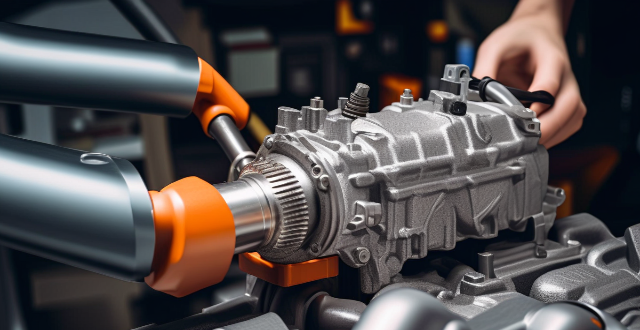The fuel injector is a crucial component of a car's engine, responsible for delivering a precise amount of fuel into the combustion chamber. It atomizes the fuel into a fine mist for efficient mixing with air, regulates fuel delivery based on operating conditions, ensures proper ignition timing, contributes to emission control, and requires regular maintenance for optimal performance.

The Role of a Fuel Injector in a Car's Engine
A fuel injector plays a crucial role in the operation of a car's engine. It is responsible for delivering a precise amount of fuel into the combustion chamber, where it is mixed with air and ignited to produce the power that drives the vehicle. Here are some key aspects of its function:
Atomization
The primary function of a fuel injector is to atomize the fuel into a fine mist, which can be easily mixed with air. This process increases the surface area of the fuel droplets, allowing them to vaporize more quickly and evenly mix with the air. A well-atomized fuel spray ensures efficient combustion, leading to better engine performance and reduced emissions.
Fuel Delivery
Fuel injectors are electronically controlled devices that regulate the amount of fuel injected into each cylinder. They work in conjunction with the engine's computer system (ECU) to deliver the optimal amount of fuel based on various operating conditions such as load, temperature, and engine speed. This precise fuel delivery helps maintain the correct air-fuel ratio, which is essential for maximum efficiency and power output.
Ignition Timing
Fuel injectors also play a role in ignition timing by ensuring that the fuel is delivered at the right moment during the engine cycle. This timing is critical for achieving optimal combustion and minimizing harmful exhaust emissions. In modern vehicles equipped with direct injection systems, fuel injectors may directly influence ignition timing by controlling the timing and location of fuel injection within the combustion chamber.
Emission Control
By delivering the correct amount of fuel at the right time, fuel injectors contribute to emission control. They help maintain strict emission standards by reducing the formation of harmful pollutants such as carbon monoxide, hydrocarbons, and nitrogen oxides. Properly functioning fuel injectors also prevent issues like lean or rich running conditions, which can lead to increased emissions and decreased fuel economy.
Maintenance and Reliability
Fuel injectors require regular maintenance to ensure their continued performance and reliability. Over time, they can become clogged or fouled by contaminants in the fuel system, affecting their ability to deliver an accurate amount of fuel. Regular cleaning or replacement of fuel filters, using high-quality fuel, and following manufacturer recommendations for servicing can help extend the lifespan of fuel injectors and maintain optimal engine performance.
In summary, a fuel injector's role in a car's engine is multifaceted, involving atomization, fuel delivery, ignition timing, emission control, and maintenance. By performing these functions efficiently, fuel injectors contribute significantly to the overall health and performance of an automobile's engine.